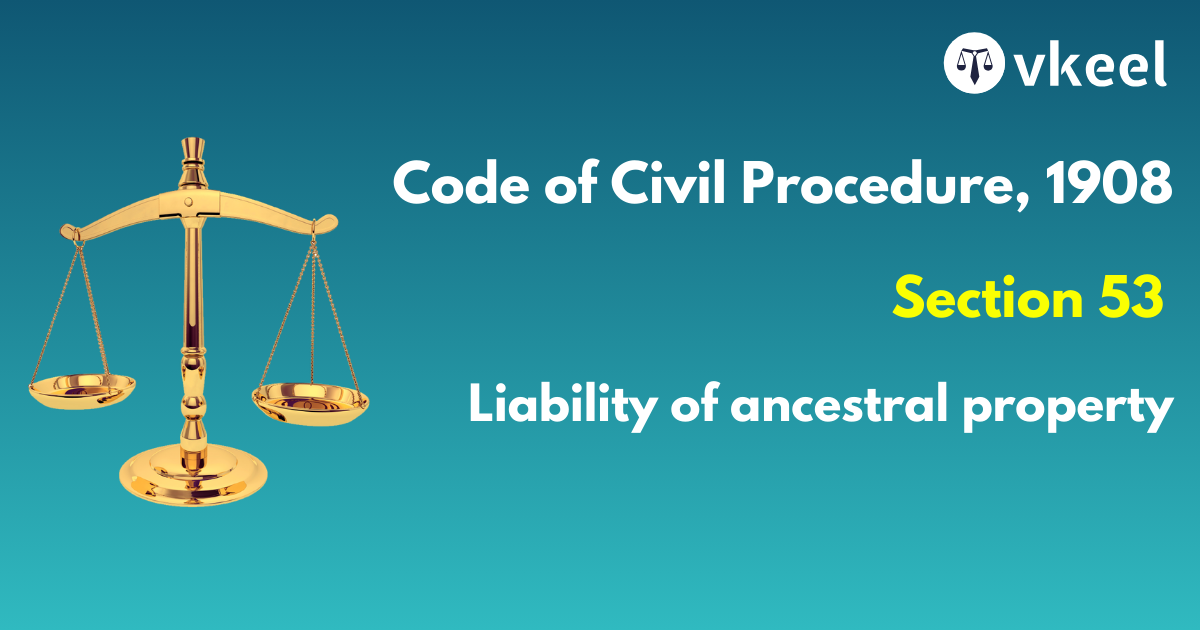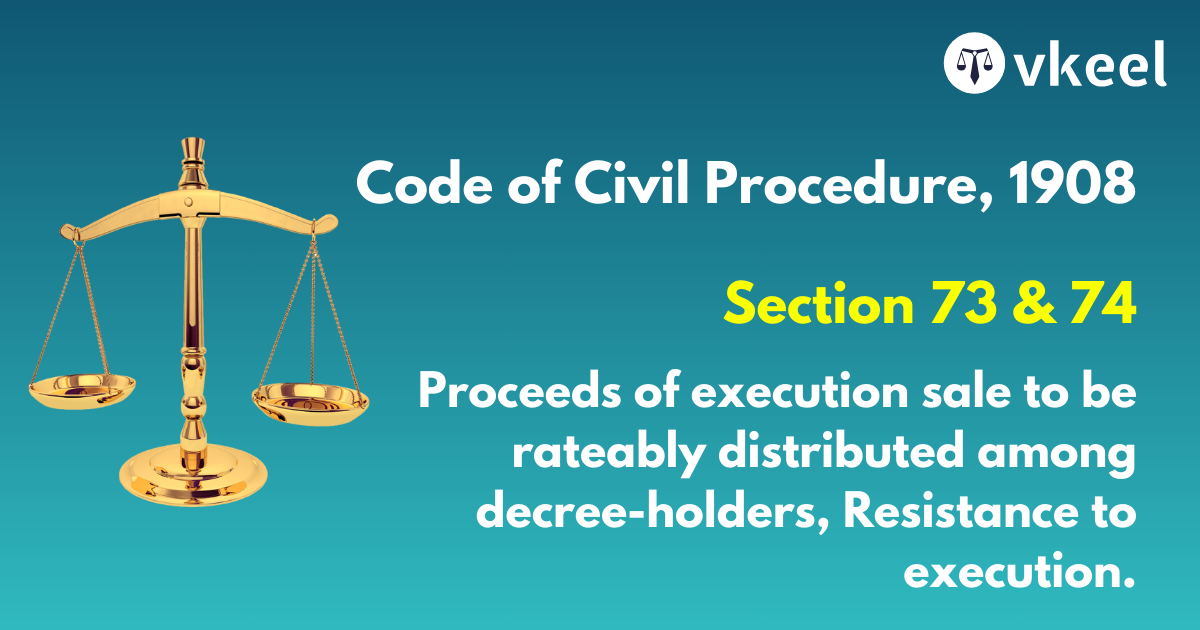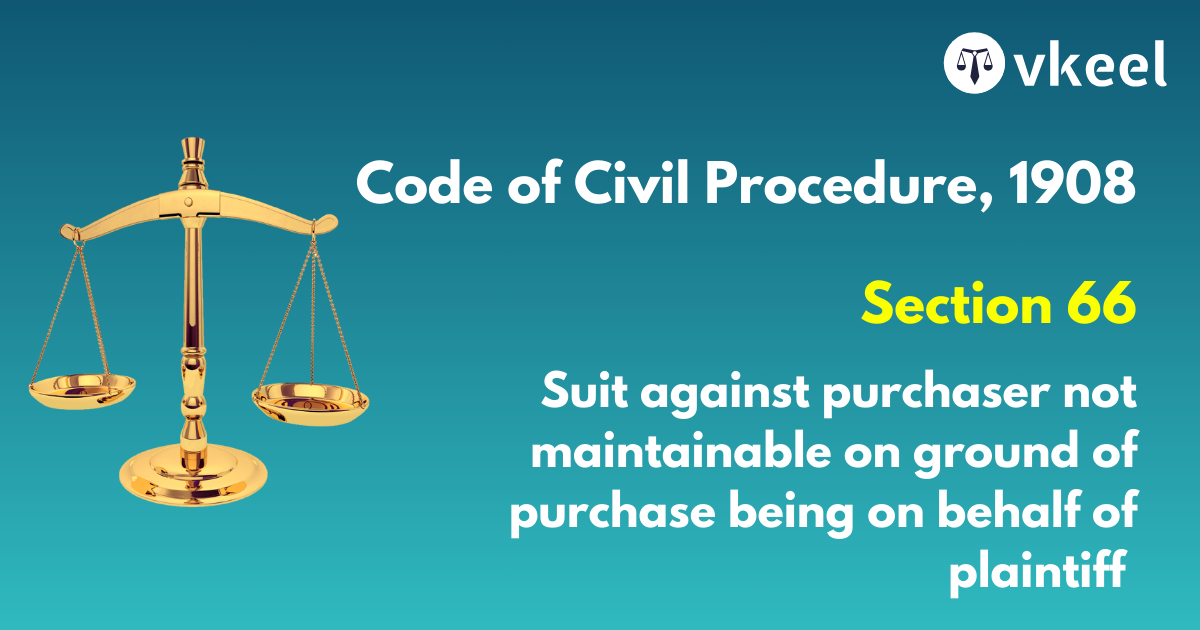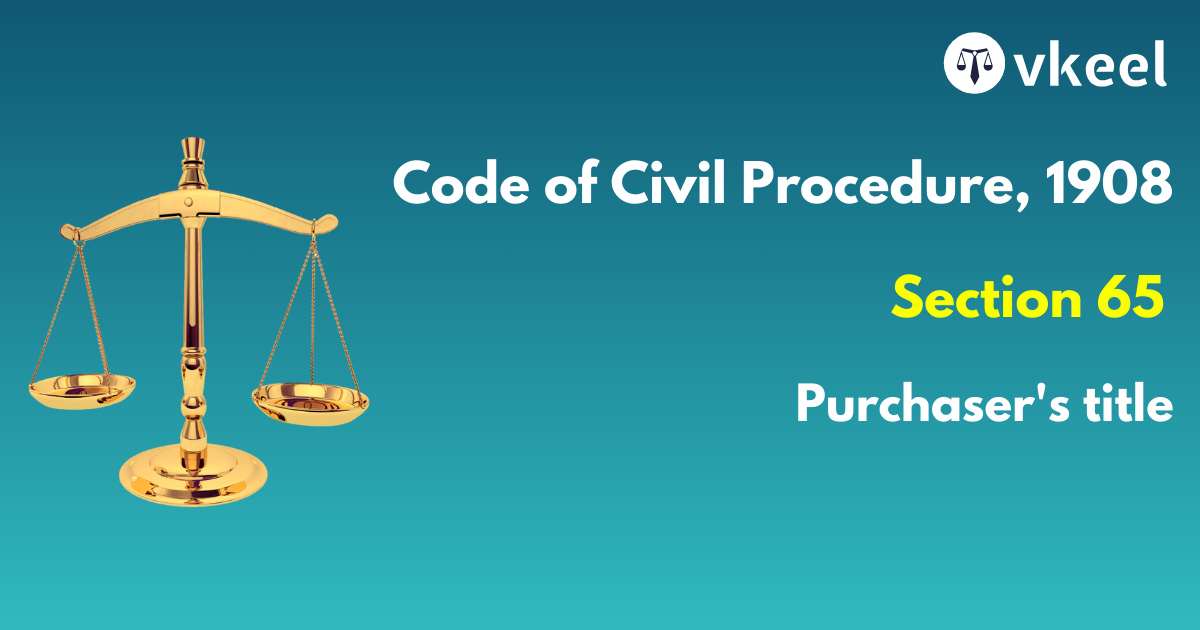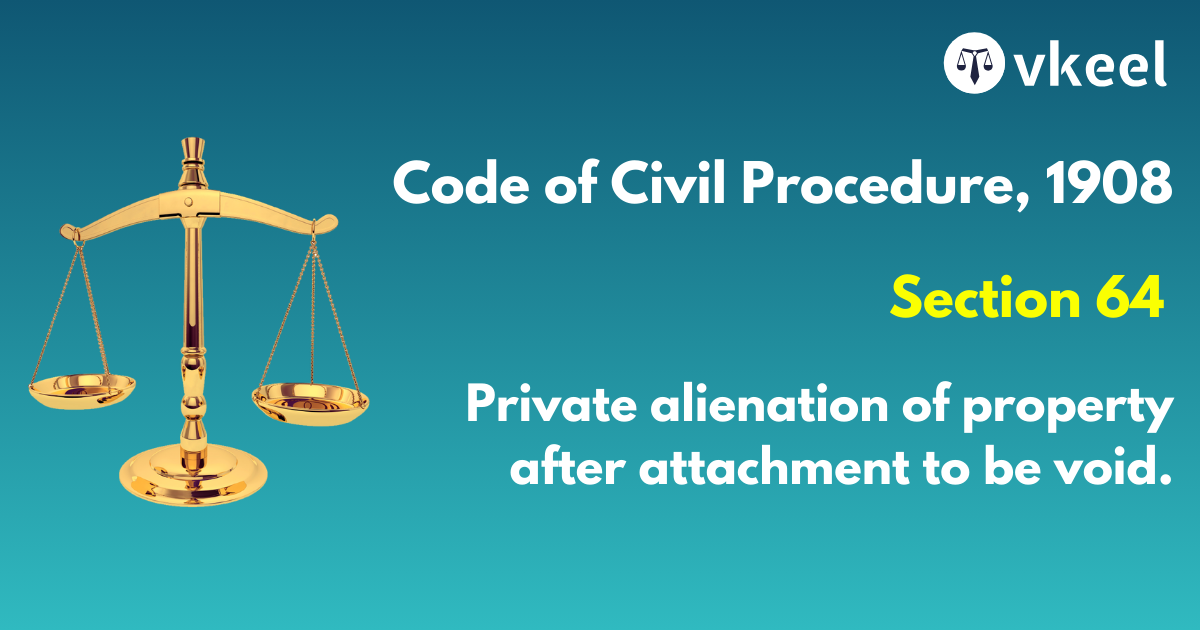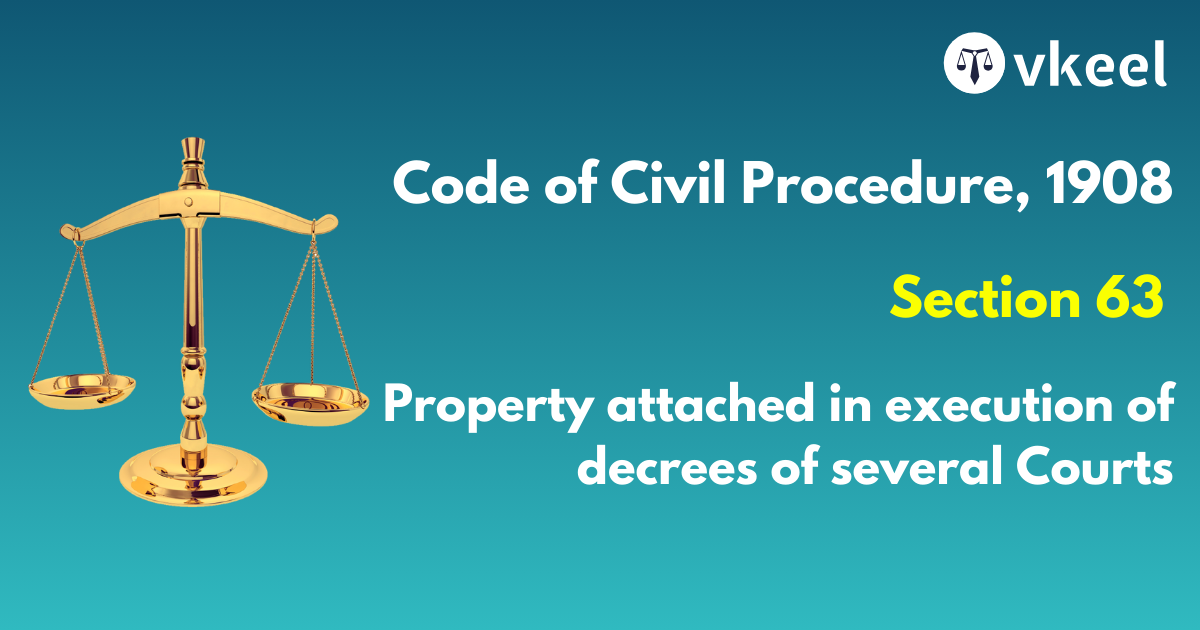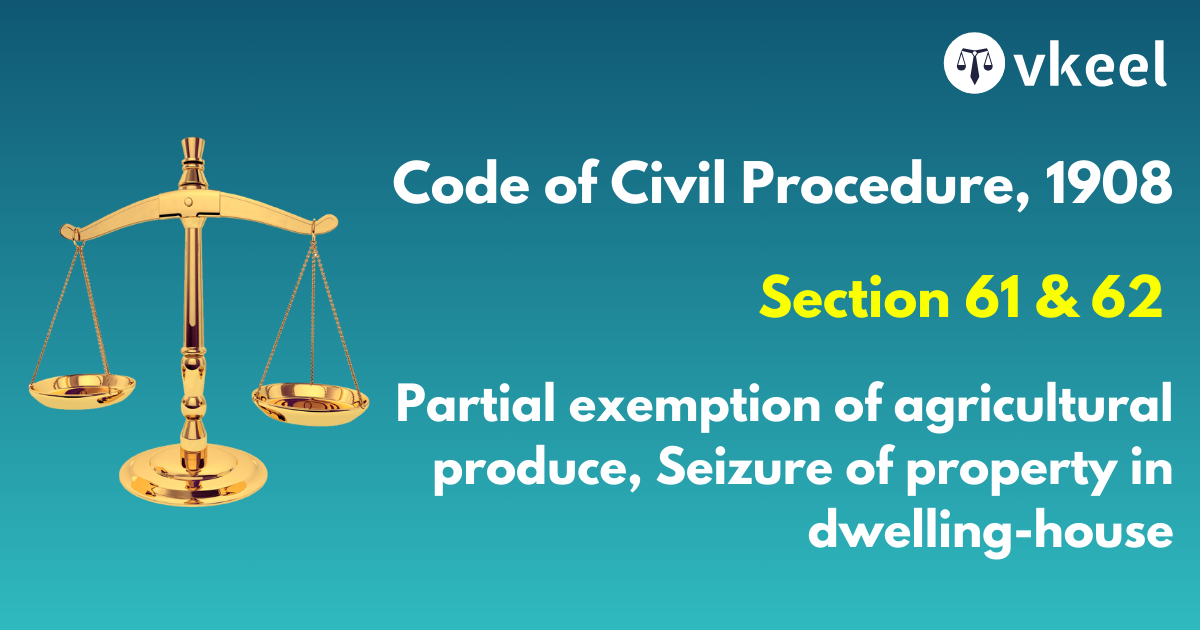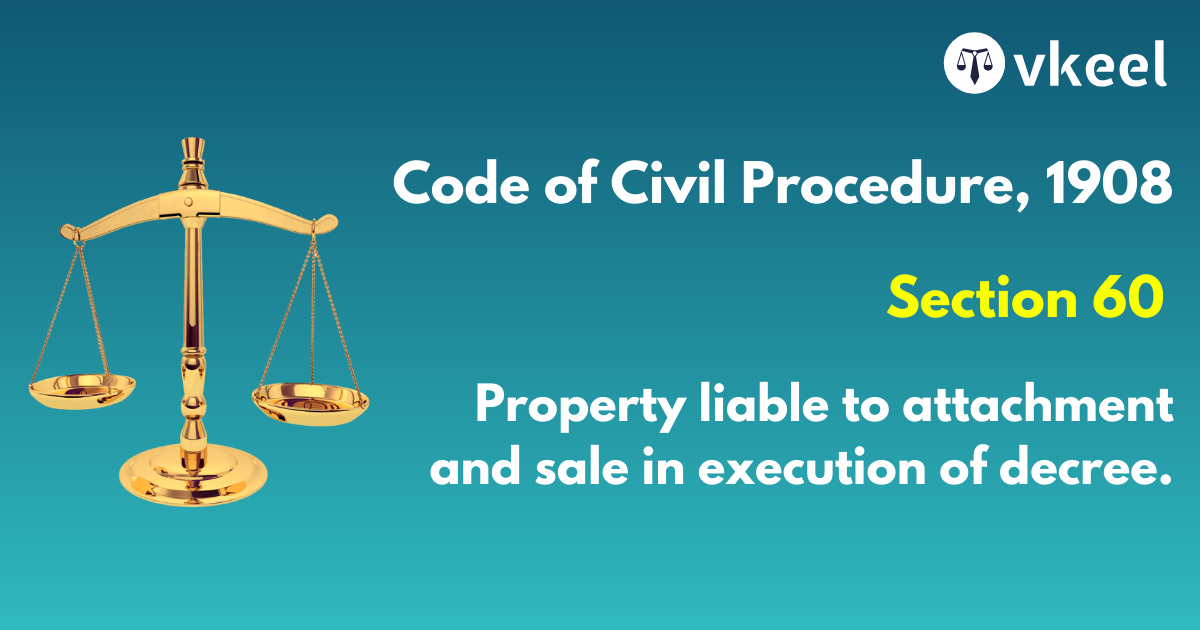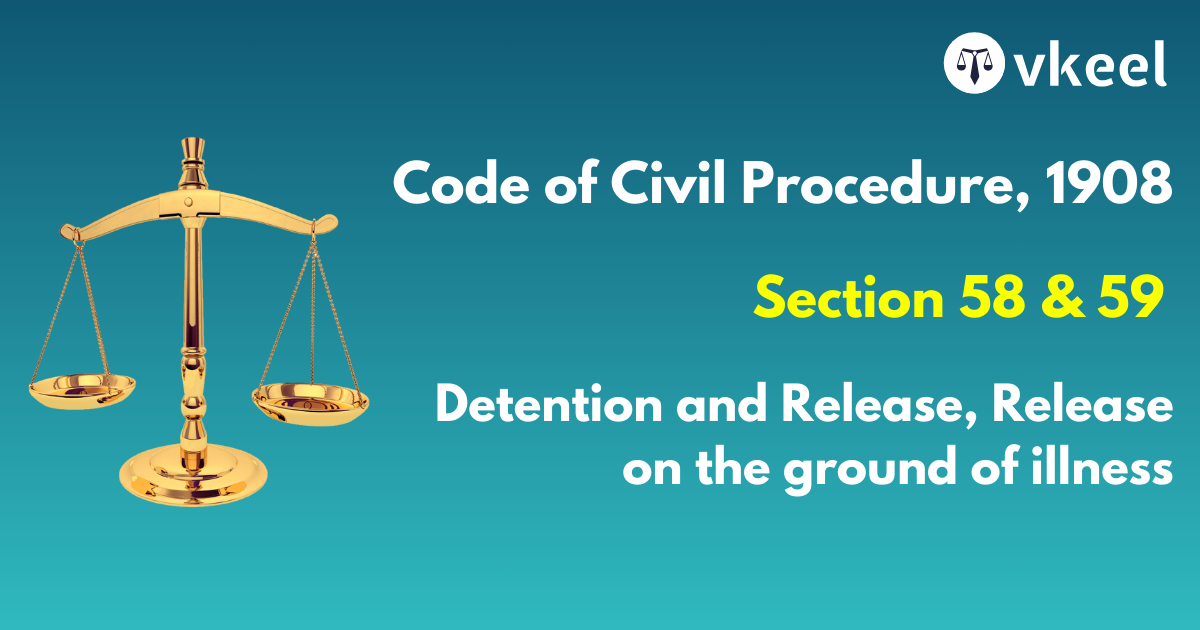Section 53 of the Code of Civil Procedure,1908
By Joy Puri
Introduction
The section 53 of the Code of Civil Procedure entails about the liability of the ancestral property.
Furthermore, if a decree specifically involves personal obligations or promises or the duties of the deceased, it cannot be enforced against the legal representatives of the deceased.
Thereafter, the section 53 of the Code of Civil Procedure also allows the execution of decrees, whether it is a decree for money or other forms of decrees like property disputes, to be pursued against the inherited estate of the respective individual.
Section 53 of the Code of Civil Procedure, 1908
Liability of ancestral property-
For the purposes of section 50 and section 52, property in the hands of a son or other descendant which is liable under Hindu law for the payment of the debt of a deceased ancestor, in respect of which a decree has been passed, shall be deemed to be property of the deceased which has come to the hands of the son or other descendant as his legal representative.
Landmark Case Laws
Pannalal Vs Naraini, 1952
The operation of the section is attracted only when the liability to pay the debts of father exists under the Hindu Law. It being only a rule of procedure cannot create or take away any substantive right. Sons are liable to pay pre-partition debts of father, unless there was an arrangement at that time for their payment. Section 53 extended to a case where the father is still alive.
Kollapudi Vs Mandru,1957
The object of the section was to make the property in the hands of a son available for execution of a decree obtained against the father, notwithstanding that he had not got it by inheritance but by survivorship. The word ‘son’ could not be construed to mean son’s heirs also. The section therefore does not apply to cases other than those of sons or other descendants. Hence where a decree was passed against the estate of the judgment-debtor’s husband in her hands, but the property attached was in her possession as the heir of her deceased son, section 53 did not come into play.
Rao Bhim Vs Sher, 52 Cal WN 109
Section 53 appears to be designed to enlarge the class of property liable to execution under sections 50 and 52. This is effected by deeming certain property to have come into the hands of the legal representatives as property of the deceased which in fact has not done so. Section 53 is not limited to cases in which execution is being levied for a debt in respect of which a decree has been passed. The words “property in the hands…….has been passed” are descriptive of the class of property which can be reached in execution, and not as limiting the nature of the debt for which execution can be levied.
Jakati Vs Borkar, 1959
Unless the son in a Mitakshara coparcenary family succeeds in proving that the decree obtained against the father was for an immoral or illegal debt, the creditor’s right in seizing the whole coparcenary property including the son’s share remains unaffected. This applies also to a decree obtained by a creditor before the partition of the joint family; as the pious obligation to discharge the father’s debt continues even though the father’s power to alienate comes to end as the result of partition.
Matiomal Vs Tirithmal,1939
Section 53 is most comprehensive. It is not limited to ancestral property devolving by survivorship. It applies equally to ancestral or joint family property coming into possession on a partition between a person and his father or ancestor
Rajaram Vs Rajabaksh,1938
Suit decreed against estate of deceased mortgagor in hands of his sons, but dismissed as against grandsons-Decree cannot be executed against the interest of the grandsons in the family property on the footing that the whole family property was liable for the deceased’s debt.
Venkata Vs V ,1937
The word “debt” is wide enough in include a pre-partition debt of father.
Bhim Vs Gangaram, 1940
Section 53 has created a fiction for the purposes of sections 50 and 52. Section 53 seems to be limited to cases where the decree is one passed in a suit on a debt. Hence it will not apply to a decree for compensation in lieu of specific performance.
Ganesh Vs Narayan,1931
It has however been held that section 53 appears to have been enacted to explain the meaning of “property of the deceased” in sections 50 and 52 and is not limited to decree for debt but applies to all decrees, e.g., decree for injunction against father executed against son.
Shiv v Karam,1934
A decree was passed against a father under O XXXIV unconditionally that certain property is chargeable and shall be sold. The words “which is liable….. ancestor” do not allow the representatives of the deceased judgment-debtor to resist execution on the ground that the decree ought not to have been passed in regard to a debt which should not have been contracted. It can only be done by a separate suit.
Atul Vs Nandani, 1935
Judicial opinion was not agreed on the mode in which the obligation to discharge the debts of father out of the joint family properties could be enforced after partition. It was held that after partition the creditor could not execute a decree obtained against the father alone against the shares allotted to the sons on partition, but he must file a separate suit and execute the decree against the shares that fall to them.
Conclusion
To conclude to the Section 53 of the Code of Civil Procedure, prevents any abrupt cessation of justice while ensuring that the legal representatives are not unfairly penalized, thus providing a balanced approach to civil execution law.
This ensures the creditor’s rights are protected without imposing unreasonable burdens on heirs.
Disclaimer:
The information provided in the article is for general informational purposes only, and is not intended to constitute legal advice or to be relied upon as a substitute for legal advice. Furthermore, any information contained in the article is not guaranteed to be current, complete or accurate. If you require legal advice or representation, you should contact an attorney or law firm directly. We are not responsible for any damages resulting from any reliance on the content of this website.

